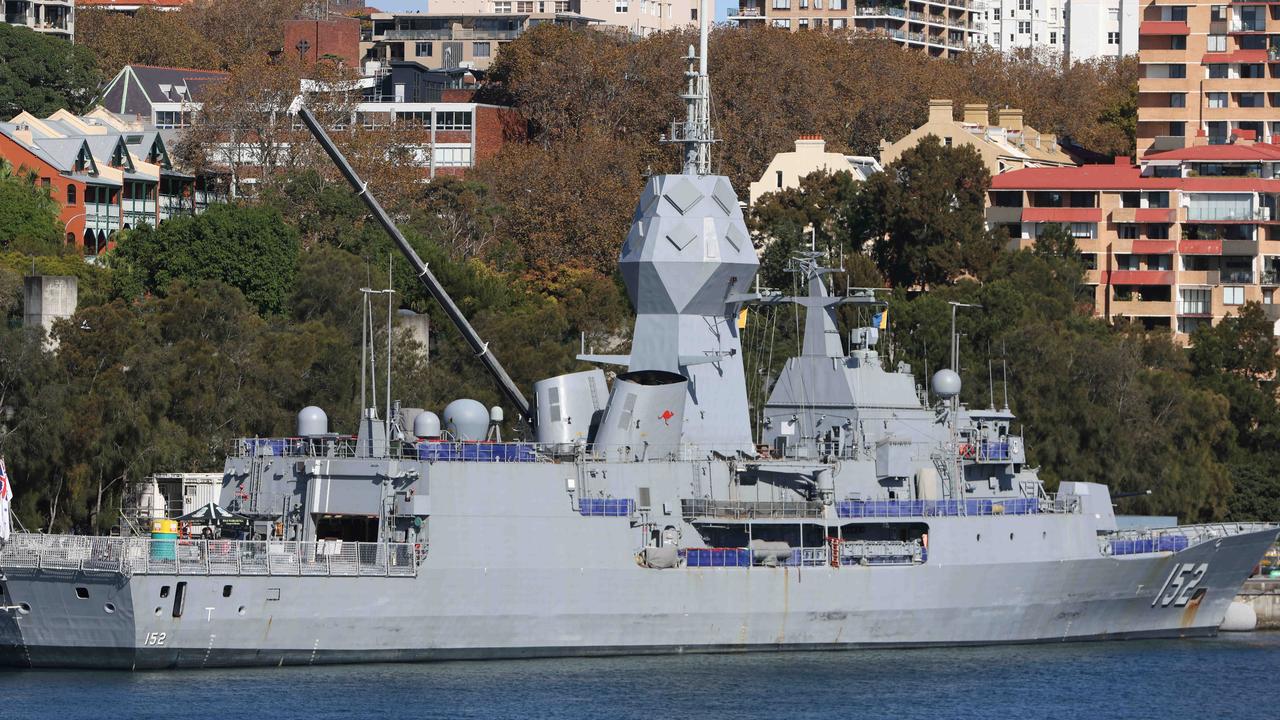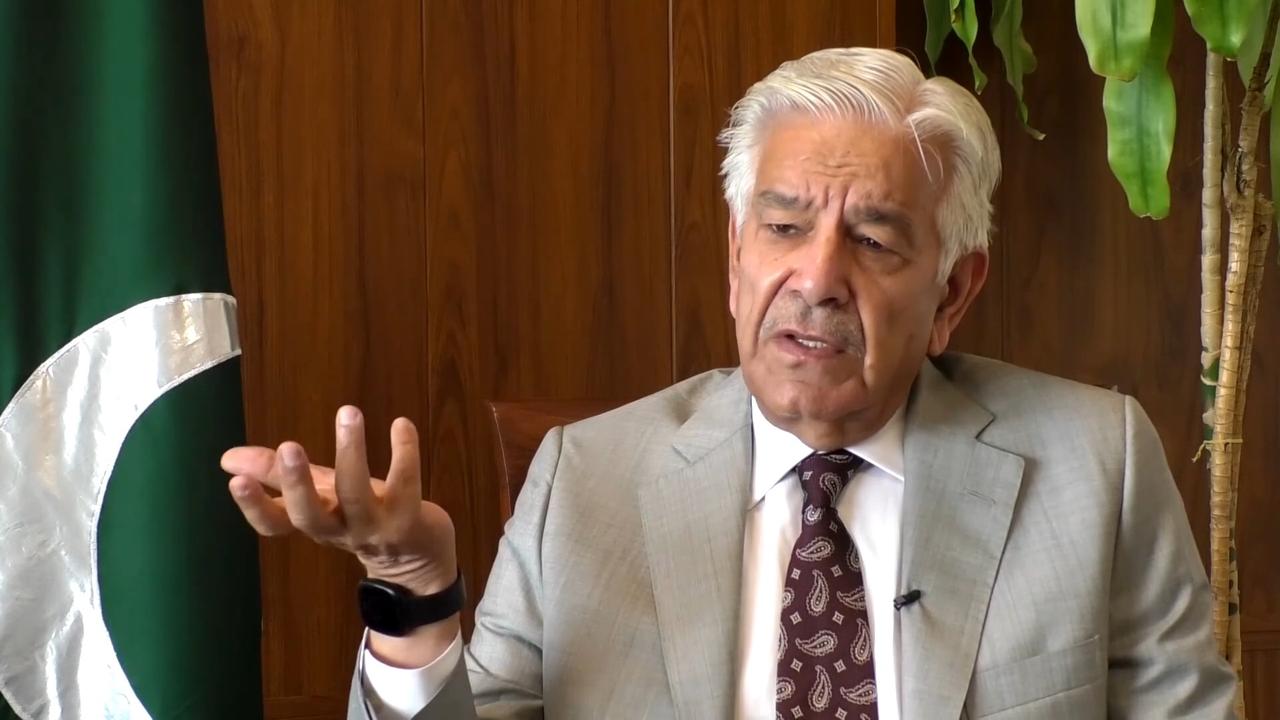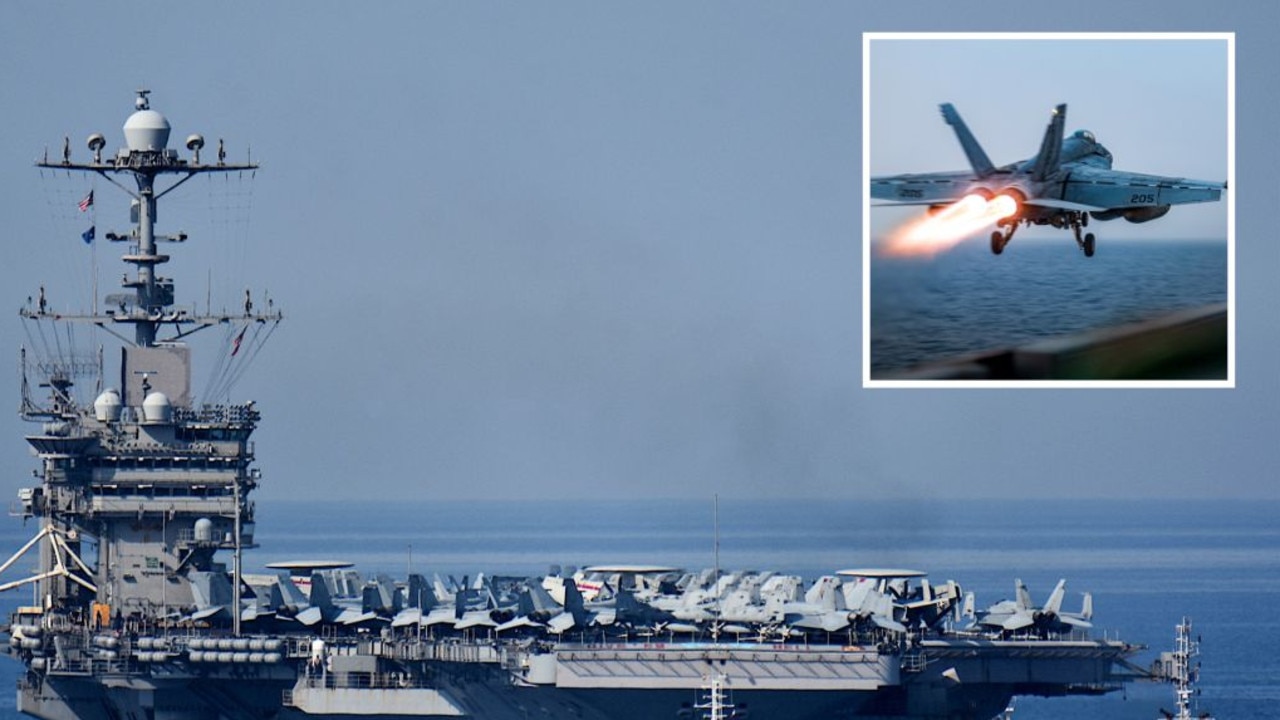Home Affairs boss warns ‘drums of war’ are beating
One of the country’s top national security officials has warned that the “drums of war” are beating as tensions with China escalate.
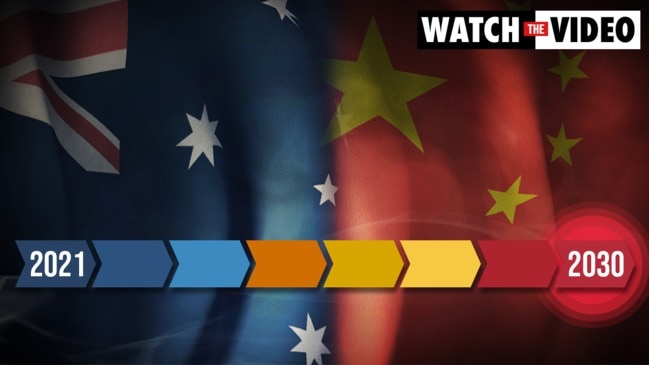
One of the country’s top national security officials has warned that the “drums of war” are beating as tensions with China escalate, urging Australians not to fall into the trap of thinking “war might leave us be” if we simply “wish away the curse”.
Home Affairs Secretary Michael Pezzullo said in his Anzac Day message released on Sunday that the country should do everything in its power to find peace, “until we are faced with the only prudent, if sorrowful, course – to send off, yet again, our warriors to fight the nation’s wars”.
His sobering comments came on the same day Defence Minister Peter Dutton said that a war with China over Taiwan should not “be discounted”.
Speaking on Sky News today, Nationals senator Matt Canavan said the “Australian people need a wake up call”.
“We must be ready for the worst outcome,” he said.
Mr Pezzullo, drawing on two speeches by US Generals of the Army, Douglas MacArthur and President Dwight Eisenhower, said Australians should not forget the lessons of World War II and the subsequent build-up of Soviet military power.
“Throughout his presidency, Eisenhower instilled in the free nations the conviction that as long as there persists tyranny’s threat to freedom they must remain armed, strong and ready for war, even as they lament the curse of war,” Mr Pezzullo said.
“Today, free nations continue still to face this sorrowful challenge. In a world of perpetual tension and dread, the drums of war beat – sometimes faintly and distantly, and at other times more loudly and ever closer.”
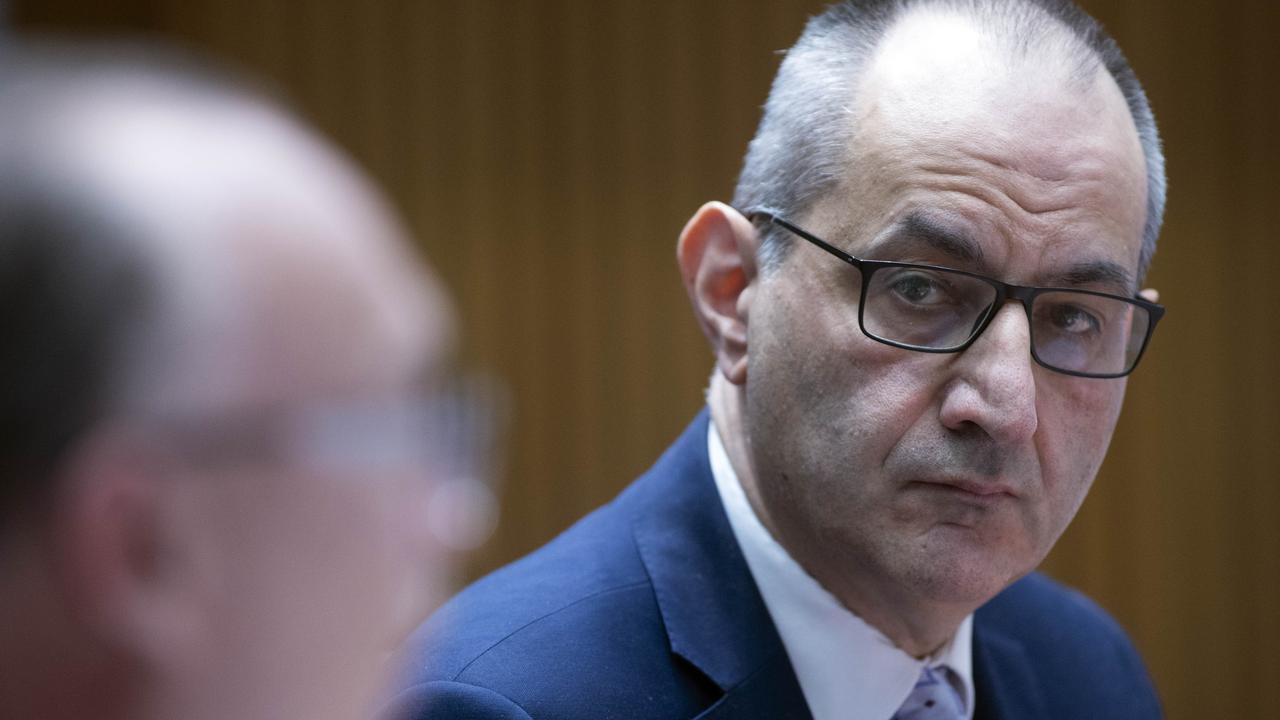
Australia needs US ‘nuclear deterrent’
As Australia prepares to mark the 70th anniversary of its key military alliance with the US – which offers us protection “including by way of the deterrence effect of its nuclear arsenal, and its willingness and preparedness to wage war against a major power adversary” – Mr Pezzullo said we must “remember the warnings of two American generals who had known war waged totally, and brutally”.
“We must search always for the chance for peace amidst the curse of war, until we are faced with the only prudent, if sorrowful, course – to send off, yet again, our warriors to fight the nation’s wars,” he said.
“Let there not be doubt – war shakes confidence in a civilisation’s soul. Who could begrudge the sorrow of Europeans after the horror of the First World War? Yet, in their sorrow and their revulsion at the thought of another terrible bloodbath, they did not heed the drums of war which beat through the 1930s – until too late they once again took up arms against Nazism and Fascism.”
#USSTRATCOM Posture Statement Preview: The spectrum of conflict today is neither linear nor predictable. We must account for the possibility of conflict leading to conditions which could very rapidly drive an adversary to consider nuclear use as their least bad option. pic.twitter.com/4Oe7xkl05L
— US Strategic Command (@US_Stratcom) April 20, 2021
He continued, “Today, as free nations again hear the beating drums and watch worryingly the militarisation of issues that we had, until recent years, thought unlikely to be catalysts for war, let us continue to search unceasingly for the chance for peace while bracing again, yet again, for the curse of war.”
Mr Pezzullo also appeared to warn against appeasement or complacency.
“By our resolve and our strength, by our preparedness of arms, and by our statecraft, let us get about reducing the likelihood of war – but not at the cost of our precious liberty,” he said.
“War might well be folly, but the greater folly is to wish away the curse by refusing to give it thought and attention, as if in so doing, war might leave us be, forgetting us perhaps.”
Speaking to the ABC’s Insiders program on Sunday, Mr Dutton said Australians needed to be realistic about China’s increasing militarisation in the region, and the prospect of war over Taiwan.
“I don’t think it should be discounted,” he said.
“I think China has been very clear about the reunification and that’s been a long-held objective of theirs and if you look at any of the rhetoric that is coming out of China, particularly in recent weeks and months, they have been very clear about that goal.”
Mr Dutton said Australia should work with its regional allies to maintain peace.
“For us we want to make sure we continue to be a good neighbour in the region, that we work with our partners and with our allies and nobody wants to see conflict between China and Taiwan or anywhere else,” he said.
Last week, former Prime Minister Tony Abbott sounded a similar warning at a seminar in Auckland, The Australian reported. ​
“What’s very real, though, and daily more insistent, is the Beijing government’s determination to retake Taiwan, by force if necessary, at least by the 2049 centenary of the Chinese Communist Party’s takeover,” Mr Abbott said.
That came after former Defence Minister Christopher Pyne warned earlier this month that Australia could face war with China in coming years.
“Five years ago, I would have said that the possibility was very unlikely – now I would have to say that the possibility is more likely than it was then,” he said in a speech at the University of Adelaide.
“Not a cyber war, but a real one involving loss of life, destruction of military platforms, with aggressors and defenders on different sides. This isn’t rhetoric. This is something that you and I may well have to confront in the next five to 10 years.”

Port of Darwin could be taken back
Speaking to the ABC, Mr Dutton said that due to rising tensions, “thousands” of China-related deals were now being examined, including the controversial 99-year lease of the Port of Darwin to Chinese-owned company Landbridge.
Last week, the Federal Government used its new foreign relations laws to scrap Victoria’s controversial Belt and Road Initiative agreement with China, calling it “inconsistent with Australia’s foreign policy”.
The decision announced on Wednesday by Foreign Affairs Minister Marise Payne sparked a furious response from China, which slammed the “unreasonable and provocative move”.
“It further shows that the Australian government has no sincerity in improving China-Australia relations,” a Chinese Embassy spokesman said. “It is bound to bring further damage to bilateral relations, and will only end up hurting itself.”
The Federal Government had previously indicated that the Port of Darwin lease was outside of the scope of the new laws, which only cover government-to-government deals and not those with private companies.
But a parliamentary committee last month called on the government to tear up the deal, inked between the Northern Territory and Landbridge in 2015, deeming it an “unacceptable national security risk”.
Speaking to the ABC in 2019, Australia Defence Association executive director Neil James called it “a seriously dumb idea” on the Northern Territory’s part.
“If (Landbridge’s) offer was the best offer, but it introduced a major element of strategic risk for the whole country, they should have had the common sense to realise they take the second best offer or the third best offer and not have any strategic risk,” he said.
“You don’t farm out the risk to everyone in Australia over 99 years to save you some money in the early 20-teens. (Leasing the port) to someone who runs the risk of being a potential adversary over the next 99 years, it’s the equivalent of leasing the Port to the Japanese in 1938.”
A growing number of politicians, including independent Senators Jacqui Lambie and Rex Patrick, have urged the government to act.
“There are literally thousands of these cases to look at and the Foreign Affairs Minister is working through all of that,” Mr Dutton told Insiders on Sunday.
“The advice from Defence in relation to any of these matters will be taken into consideration by (Marise Payne). If it’s not in our national interest, then obviously she’ll act and I think she is doing exactly the right thing here. Our sovereignty is incredibly important and our values are important and I don’t think anybody would argue with that.”
Landbridge has been contacted for comment.

US expects Australia’s help in Taiwan
Relations between Australia and its largest trading partner have dramatically soured since early 2020 in fallout from the COVID-19 pandemic.
Australian Prime Minister Scott Morrison was the first world leader to call for an independent inquiry into the origins of the virus, sparking fury from Beijing and sharp retaliation via an escalating series of trade sanctions and increasingly hostile rhetoric.
At the same time, China has aggressively ramped up its military activity in the South China Sea and over Taiwanese air space.
Last month, America’s chargé d’affaires in Canberra, Michael Goldman, hinted that Washington expects Australia to participate in Taiwan’s defence.
“There’s a lot of focus on overt, crude military intervention,” Mr Goldman told the Australian National University’s National Security podcast.
“I’d just like to say that we’re focused on that, of course. But then we’re also concerned with all sorts of other aspects of coercion that don’t quite reach the level of a military invasion. You can think of all sorts of things ranging from a blockade to cyber incursions to, you know, lobbing missiles over the island.”
Military analysts, meanwhile, have warned that Australia is woefully underprepared for any potential conflict, particularly against China’s next generation of long-range stealth bombers, including the nuclear-capable Xian H-20.
The H-20 would likely have a range of up to 5000km, and could carry cruise missiles.
“Cruise missiles are hard and costly to shoot down – Australia is virtually defenceless against them,” aerospace analyst Bradley Perrett wrote for the Australian Strategic Policy Institute in February.
“Barely discussed is that an unimaginable range of Australian military and civilian facilities and infrastructure can be knocked out by cruise missiles. For example, we endlessly debate the cost of submarine programs, but where, exactly, does the Royal Australian Navy expect to refuel and restock these vessels after each war patrol? Which facilities are expected not to be smoking ruins?”


